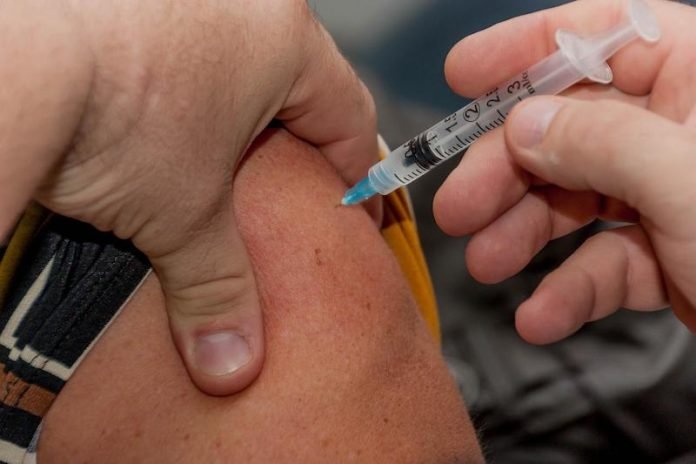
Scientists from Dana-Farber Cancer Institute and elsewhere have developed a new type of vaccine that helps the immune system destroy cancerous tumors by overcoming their defense system.
The research is published in the journal Nature and was conducted by Soumya Badrinath et al.
Until recently, the only tools available to doctors treating cancer patients have been chemotherapy, radiation treatment and surgery.
Recent studies have been exploring vaccines in the fight against cancer—the development of a vaccine against HPV-related diseases, for example, has reduced the risks of cervical and other types of cancers.
In the study, the team developed a more generalized vaccine that can be used against multiple types of cancers.
The new vaccine works by taking away one of the major defense strategies used by tumors, which is the ability to cleave T cells and natural killer cells from their surfaces.
Such cells are deployed when the body detects a growing tumor and alerts the immune system.
Tumors are free to grow by shedding them after they affix themselves to MICA and MICB proteins on their surface.
The new vaccine works by interceding in the cleaving process, preventing the tumor from shedding the immune cells sent to kill it.
The vaccine disrupts this cleaving process by increasing the density of proteins on the surface of tumor cells.
The team found that the vaccine is safe and effective in mouse and rhesus macaque models.
There are indications that the vaccine works even better when used in conjunction with radiation therapy.
The researchers are now in the process of designing a clinical trial that will test the new vaccine in humans.
If you care about cancer, please read studies about low-dose drug combo that may block cancer spread, and this drug for inflammation could help stop cancer metastasis.
For more information about cancer, please see recent studies about daily vitamin that is critical to cancer prevention, and results showing this omega-3 nutrient in fish can be a poison for cancer.
Copyright © 2022 Knowridge Science Report. All rights reserved.



